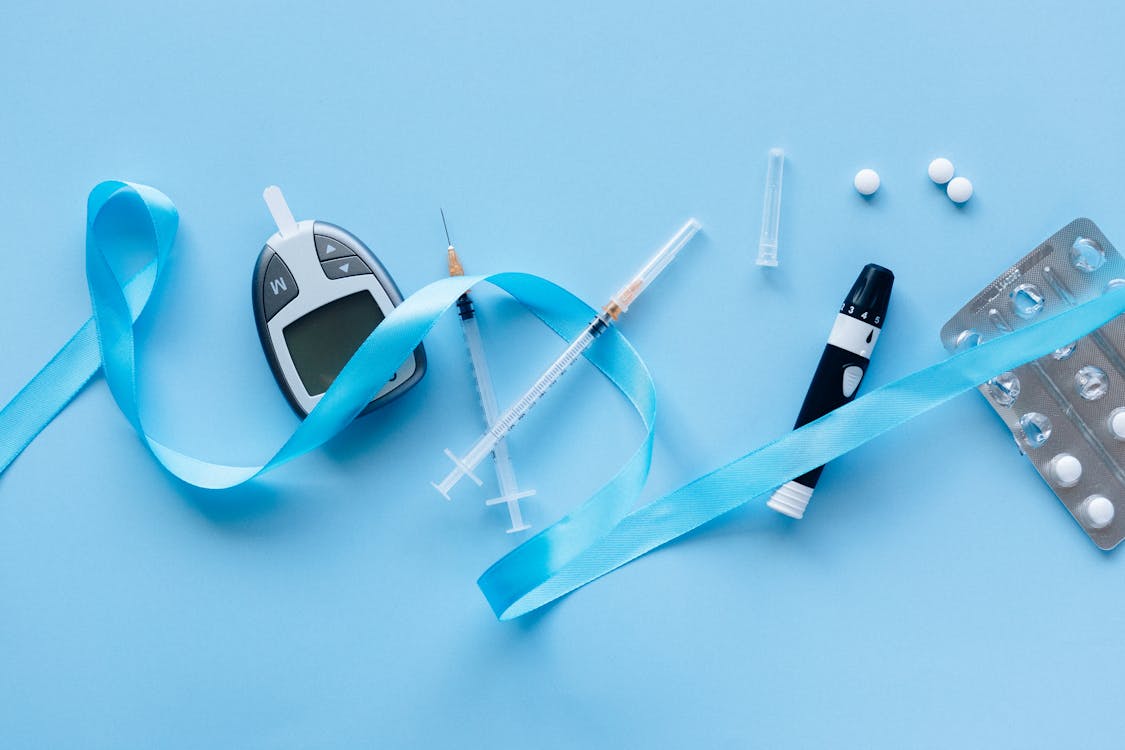During puberty, teenagers struggle with hormonal changes as well as their role/place in the world. Teenage years are fraught with mental, physical, and emotional transformations. They are an exciting and sometimes frustrating time for families.
S/he may feel a growing desire to experiment, test boundaries, go out, strive for independence, etc. Your teen is no longer a child, but he/she is not yet an adult either. Sometimes it’s difficult for parents to form strong bonds with their adolescent children. When a chronic illness like diabetes is added to this fragile relationship, the challenge becomes even greater.

Photo by Natalia Vaitkevich from Pexels
Diabetes in Teenagers
Around 210,000 kids & teenagers under the age of 20 in the U.S. have been diagnosed with diabetes. Both type 1 & 2 diabetes can affect children & teenagers. However, type 1 (previously called juvenile diabetes) is more common in young people. The average age when type 1 diabetes is diagnosed is between the ages of 10–14. Type 2 diabetes is less common in young kids, but children can also develop it.
Teenagers who have recently been diagnosed with diabetes may struggle with issues such as the reactions of others, fear of the disease, feeling depressed, fear of multiple injections, etc. Sometimes they want to deny they even have diabetes. They think if they don’t pay any attention to it, it will just go away.
Many teens don’t want to be different, and they don’t want to check their blood sugar in front of others. That’s why they need the help of parents, family members, friends, and loved ones to establish a routine toward managing their diabetes.
The Critical Role of Parents
Some parents are more successful in diabetes management. Positive outcomes are more likely for teens who grow up in families who are very knowledgeable about diabetes and its emotional & psychological impacts on teenagers. With family support, adolescents can find a constructive way to manage diabetes that prepares them for a long, happy life.

Photo by Anna Shvets from Pexels
Practical Tips: Caring for a Teen with Diabetes
School, birth control, smoking, alcohol, sex, drugs, etc., are the main diabetes-specific concerns parents have regarding their teens. Moreover, they’re worried about the interaction between growth hormones and insulin as well as its effect on their teen’s blood sugar.
The following are some steps parents can take to better manage the situation (teens with diabetes):
Encourage Independence: Accept that ultimately it’s up to your teen to take control of his/her care. Help your teen become involved in his/her diabetes management right from the beginning to encourage confidence & independence.
Make the Transition as Smooth As Possible: Bear in mind that transitioning diabetes care to your teen can be time-consuming. Don’t expect your teen to suddenly know how to manage his/her diabetes at a certain age.
Be Persistent: Diabetes responsibilities should be delegated to the adolescent for the right reasons, not parental burnout.
Stay Involved with Your Child’s Diabetes Care: You should become a safe place where your child can share ideas & information on his/her diabetes care. It’s essential to communicate with your teen about who is responsible for which aspects of diabetes management.
Make Your Teen Aware Of the Importance of Checking His/Her Blood Sugar: Many teens may avoid checking their blood sugar level since they think it is inconvenient/time-consuming and a constant reminder of their condition. It’s worth discussing with your teen to convince them of the importance of checking their blood sugar. Diabetes test strips are an easy way to measure blood sugar.
Interact With Your Teen’s School: Ensure that the school is given the information/resources they need to support your child’s management of diabetes during school hours.
Avoid Nagging: Teens hate your long angry lectures about their wrong behaviors. Suppose you’re worried about many aspects of their behavior, such as drugs, alcohol, etc. In such a scenario, it’s essential to discuss the ones you’re most concerned about first and come back to others at a later date.
Avoid Using “Good/Bad” to Describe Diabetes: Think of blood sugars simply as what they are (just a number). When describing blood sugars as good/bad, it can implant the idea that when someone has high blood sugar, the kid is guilty of something.
Try to Focus on Behaviors, Not Outcomes: Parents often focus on the blood sugar number and whether it is low/high. This often leads to conflict & tension between parent/child. Focus on controllable behaviors that will ultimately induce the results you want. For example, focus on counting carbohydrates, injecting insulin, checking blood sugars, changing insulin pump sets, etc.
Keep In Mind That Your Kid Is A Teen: Teens themselves are notorious for not attending consistently & constantly to almost anything! They tend to maintain a shorter-term perspective than their parents, who are more concerned about the long-term effects of ineffective self-care.
Praise Your Teen for His/Her Good Behavior: Parents should repeatedly praise their teens to reinforce diabetes management behaviors that are working well and avoid anger/blaming if diabetes management is not going well.
Don’t React Too Strongly to High Blood Sugar Levels: Everyone with diabetes occasionally has them. Praise your teenager for checking his/her blood sugar level. Some products and solutions will help people with diabetes live better lives.
Let Your Teenager Meet His/Her Diabetes Health Professional Alone: This interaction will encourage your teen to be highly involved in his/her care.
Bear in Mind That Puberty Is a Time of Significant Resistance to Insulin: Hormones released during puberty make regulating blood glucose levels a considerable challenge. So don’t expect your teen to have complete control over their blood sugar.
Make Your Teen Aware Of Behaviors Dangerous For His/Her Health: Ensure that your teen understands how drugs, alcohol, and smoking can impact blood sugar levels, and he/she has someone with whom to discuss issues such as sex & birth control openly.
Bottom Line
Diabetes is undoubtedly challenging, but just like their friends, teens who have it go to school, play sports, travel, work, date, etc. Persistence & patience will lead to better blood sugar control for your teen. Generally speaking, the more in control of his/her diabetes a teen is, the more in control of their life they can be.
Diabetes care is a complicated process. It’s even more complex during adolescence. So be persistent; when your child grows up and turns into a healthy adult, he/she will understand the importance of diabetes treatment/management and appreciate all your help & care.

















